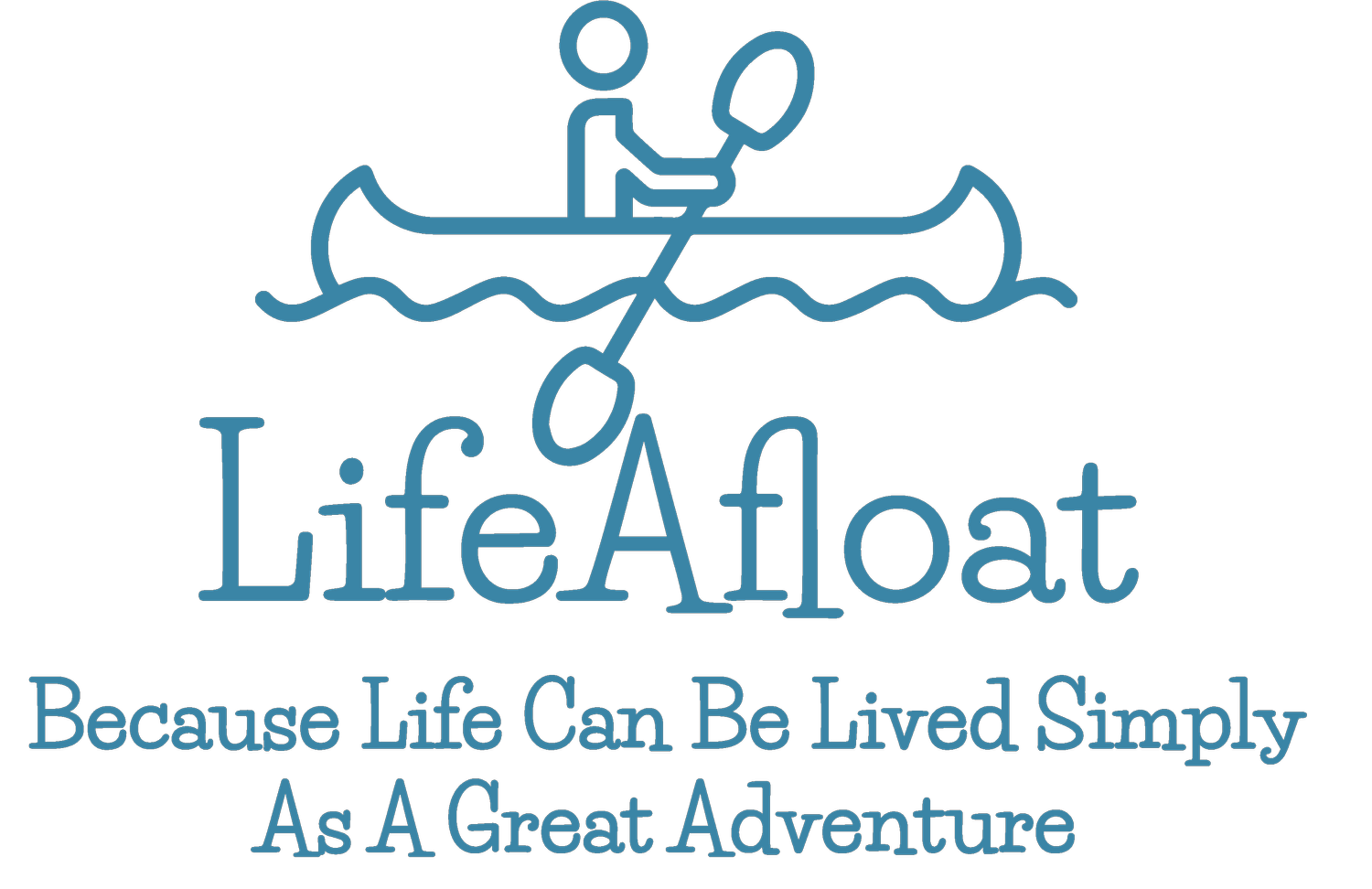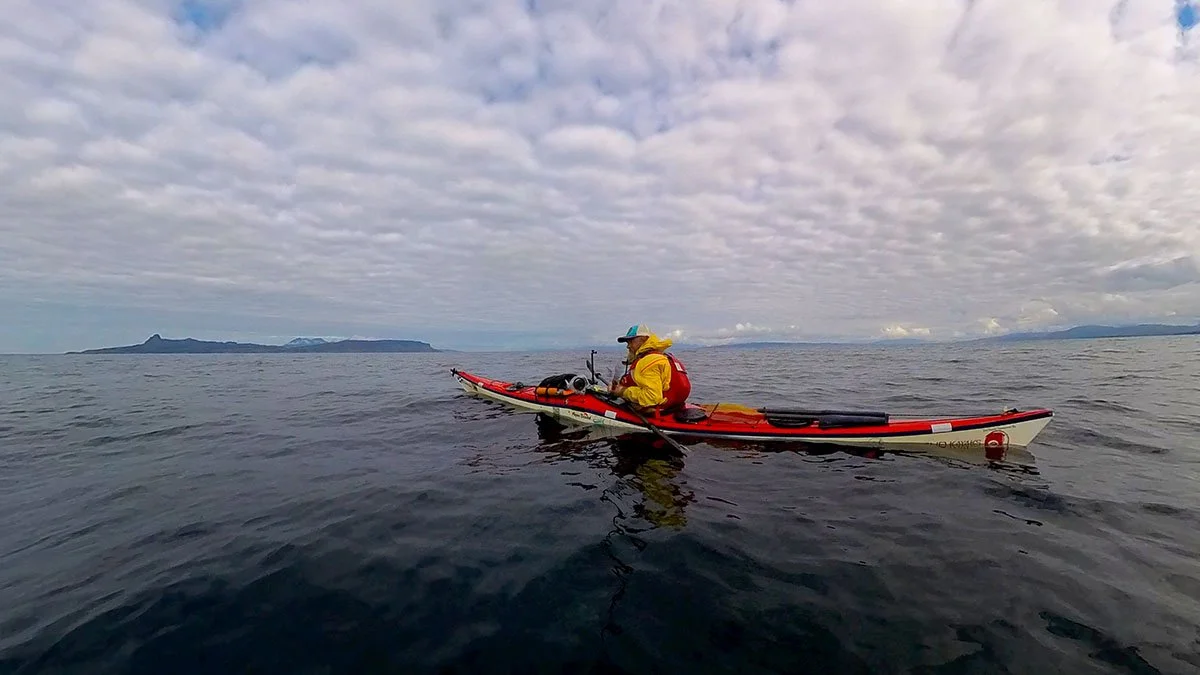Solo - Not What I Expected
/Solo, I thought it would be a doddle, maybe slightly boring, but nothing too difficult to cope with. I was wrong.
The moment Karen wished me well, kissed me goodbye and turned away, I felt a distinct wave of lonely discomfort sweep through me. I didn’t want to be alone and certainly not out there in the sun dappled woodland overlooking the Doirlinn of Tobermory Bay. I was shocked at the strength of my negative response to finding myself alone on my ‘solo’. After all, I had made a big deal about how much I was looking forward to my solitude over the next couple of days.
I immediately gave myself a stern telling off for my immediate quavering and somewhat chagrined, I sat down on a nearby moss quilted log to assimilate my situation. I needed to reign in a strong desire to shout after Karen and catch up with her before she reached where we had parked the car. Twenty minutes later and feeling much calmer, I rose from the log and set about making camp, ensuring I would be comfortable through the night and felt a sense of outdoor homeliness. It took me less than ten minutes to set up my tarp, unpack my rucksack and get a pot of water on the stove for a mug of tea. I grimaced ruefully to myself. Sometimes it isn’t helpful to be so efficient. I had hoped to eke out the task of establishing camp to eat away at empty time. With my scalding tin mug of tea, I sat down on the log once more and attempted to ease myself into my solo experience.
I was perplexed. What had come over me? I normally relished challenges such as this, especially since the weather conditions were absolutely perfect for a comfortable time out of doors. I am used to solitude, seeking the condition over companionship for many of my outdoor experiences. Now though, I realised with a shock I was not enjoying myself at all. In fact I was feeling decidedly fearful, of what, I couldn’t be certain. I tentatively sipped at my lemon and ginger tea, searing my lips as a result. This jolted me out of my internalising reverie, causing me to once again rebuke myself for not wholeheartedly throwing myself into this unique opportunity I had before me.
The woodland above the Doirlinn.
The hours dragged by. I had my note book and pencils by my side and from time to time I managed a few desultory lines of prose. My hoped for inspiration for writing did no materialise. Instead, I was filled with a deepening disquiet which was expressed through capricious behaviour and thinking. I couldn’t settle on any train of thought or action. In situations like this I attempt to sit with my discomfort to see if I’m led towards any insights through this approach. On this occasion though I simply couldn’t sit still long enough to give myself an opportunity for any self-enquiry. The one thing I was certain of was my deep tiredness. Weeks of insomnia had worn me down and in the warmth of the bright spring sunshine, my eyes drooped heavily.
Late in the afternoon (without my watch I couldn’t be sure of the time), I allowed myself to succumb to my fatigue and I stretched myself out on a comfortable solar heated bed of bright green sphagnum moss. I fell asleep almost immediately.
I woke with shivers wracking my body. The sun had arced across the sky, it’s warmth now directed elsewhere. I had no idea of the time but assumed it must have been close to eight thirty in the evening. Groggily I set about readying myself for my sleeping bag under the shelter of my nearby tarp. I was looking forward to more deep and dreamless sleep. Having sleepily cleaned my teeth and changed into warmer clothing, I snuggled into the cosy familiarity of my sleeping bag and experienced with horror a wakening mind. Tiredness persisted but sleepiness had well and truly dissipated. Try as I might, shuffling around with grunts to find the optimal position of comfort, I couldn’t fall asleep. Neither too did the night time darkness arrive as I assumed it would. It must have been a lot earlier in the evening than I thought. With a deep sigh, I resigned myself to a long night of wakeful rumination.
The dark eventually arrived, the night gradually becoming inkier as the hours dragged by. Strangely my mind was now empty of ravaged thinking. I found it comfortable to lie on my back with my hands behind my head, eyes wide open and my hearing accentuated. As usual when I turned my attention towards auditory stimuli, I cursed my intrusive tinnitus, the left ear much louder than the right. It was difficult to distinguish between the chirruping in my inner ear to that of the nuthatches flitting through the Beech tree branches above me. Despite this I found myself feeling a lot calmer than I had a few hours earlier. My mind was at last open to curiosity.
It was therefore quite a shock to discover the underlying emotion driving my thinking was sadness. My internal sadness I know from experience, is a reflection of deep level change occurring within me. I was experiencing loss in some form and I was curious to know what this might be. It was evident to me, I was affected by the changes wrought by COVID-19. I was angry too. Last year I had lost most of the summer to my psychiatric hospital admission and I was looking forward to this year celebrating my recovery through plenty of sea kayaking and other wild adventures. With the lockdown and requirement for isolation, I see another summer of joyful activity disappearing before my eyes again. This realisation though didn’t satisfy me. I sensed my sadness was rooted deeper than this.
What was changing for me? I cast my mind around in the gloom, attempting to land on a glimmer of insight but none was forthcoming. After what seemed a considerable length of time I must have drifted off into a fitful sleep where I would regularly wake with my body in violent shivers of cold.
It was with considerable relief when the promise of the dawn crept into the sky. I was able to relinquish any hope of worthwhile sleep and instead focus on the emerging day. I clambered out of the snug warmth of my sleeping bag and sat once more of the moss covered log. A pot of water came to the boil and I treated myself to a few warming mugs of tea. As the orange hues of the sunrise deepened, my thoughts once more returned to my sense of sadness. Then, it suddenly struck me, I realised why was I not enjoying this solo experience. I was attempting to complete an activity I had long wanted to achieve with the mindset of the twenty-something Outward Bound Instructor I once was. I had placed myself out on my solo with the aspirations I once held in my younger adult years and I expected myself to respond accordingly. I realised with a shock that this was a “Hungry Caterpillar” moment for me. The instance where I shed an important part of my old-self to emerge into a bright and colourful new-self.
It was clear to me I was grieving the loss of my youth in preparation for an acceptance of advancing age. For months I realised with some excitement, I had been aware of a change within me but couldn’t put my finger on it. Ever since capsizing my kayak after my island bivouac in January, I’ve had a nagging doubt about my ability to undertake challenging outdoor activities. I put this down to a knock in my self-confidence which would soon bounce back, but this hadn’t. Instead, I increasingly found myself questioning my competence. I saw myself becoming more and more physically uncertain and unbalanced. Clumsy even. Sitting there on the ancient log in the breaking hours of the morning, I marvelled at how I had stumbled onto this enlightening realisation. This didn’t lead to a resolution of my sadness and in fact I now felt more unhappy. I knew I had to let go of the expectation my body was still that of a thirty year old and not that of a man nearly now twice that age.
Well after the sun had climbed into the sky I finally concluded there was no reason why I had to force myself to continue with my solo experience. I decided to return home even though it felt a failure to do so. My disquiet caused by my night time revelations meant the following twenty four hours would be an endurance and there was a danger this may lead to harmful introspection. Content with having reached the point I had with my self-awareness, I packed my camp away and walked back to the house. After all I told myself, as an instructor I never placed shame on any of my course participants who couldn’t complete their solo experiences. There was no reason I should do this for myself and anyway, I had spent twenty four hours out in full ‘solo’ circumstances.
In the days since my shortened solo, I have given much thought to the insight I came to. I recognise a need for my acceptance of the fundamental changes in my aging body. I also recognise, and this is important for me to understand, these changes do not imply a cessation of my adventurous aspirations. Quite simply I need to alter these to account for my natural frailty and as always, focus more on the enjoyment I gain from my encounters with the wild outdoors in whatever shape or form these may take. I’m not through this process of change yet. I suspect there is a way to go, but I’m much happier now I understand where my disquiet has been centred.

